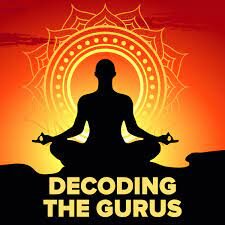
Buddhism
A lack of knowledge about Buddhism and the history of Buddhism by both meditators and meditation teachers plays a role in meditation-related difficulties. We recommend the following books to ensure more accurate understanding of Buddhism and its transition to the West.
The Making of Buddhist Modernism
by David McMahan (2008)
If you are practicing a Buddhism-derived type of meditation (like mindfulness), it’s important to have an accurate understanding about Buddhism and how it has been translated to the West. Much of what we believe (and are told) about Buddhism and meditation is often a misconception. This is one of the most important books on this topic, and all the following books will refer to it, so… start here.
The Birth of Insight
By Eric Braun (2013)
If you have been practicing Insight, Vipassana or mindfulness meditation, this book explains (and clarifies common misconceptions about) the historical roots of this practice. If you have been believing the rhetoric that mindfulness meditation is 2500 years old, and practiced by Buddhists since the time of the Buddha, you may be shocked to learn that mindfulness meditation is a much more modern invention.
Mindful America: The Mutual Transformation of Buddhist Meditation and American Culture
by Jeff Wilson
Mindful America is the first in-depth study of this phenomenon--invaluable for understanding how mindfulness came to be applied to such a vast array of non-religious concerns and how it can be reconciled with traditional Buddhism in America.
The Buddha Pill
by Miguel Farias
In the Buddha Pill, Drs. Farias and Wikholm explore the fast growing Buddhist mindfulness movement from a scientific perspective and challenge the mainstream view of its benefits. They also discuss the negative impact of the movement and tell a story of the market of personal change.
Why I am Not A Buddhist
Evan Thompson (2020)
This book the third book in the Absolute-Foundational-Knowledge Trilogy (1= Making of a Buddhist Modernism, 2=The Birth of Insight, 3=Why I Am Not a Buddhist), and rated by some meditators-in-distress as one of the most important books they ever read. Like the other two books, Thompson’s book should come with a warning label, as it may surprise you how many assumptions you had about Buddhism and meditation are wrong. But if your meditation has taken you to dark places, and you are trying to figure out why, this book also offer some explanation of how and where things went wrong.
A couple notes:
You will get more out of Thompson’s book if you read McMahan’s first.
There are a couple chapters that have been especially useful to meditators in-distress:
In Chapter 3 “No Self, Not So Fast” if you are confused or distressed by no-self teachings or experiences
Chapter 5 “ The Rhetoric of Enlightenment” if you are confused about what Enlightenment is and why you are not alone
If you digest dense information better in spoken form, check out the podcasts below where Evan unpacks his book.
Interview with Evan Thompson on Buddhist Exceptionalism
Description: We class up the podcast this week with another special interview with a philosopher specialising in Asian philosophical traditions, cognitive science, and philosophy of mind. In our discussion with Evan we address the reception and presentation of Buddhism in the West, whether it is accurate to describe it as a mind science, and how 'Buddhist modernism' is related to Buddhist exceptionalism. We also get into debates of the nature of Self and whether Sam Harris is correct to claim that modern cognitive science has confirmed the insights from Buddhism. This is not an episode targeting the tradition of Buddhism but rather an examination of a specific (modern) manifestation of Buddhism that is particularly popular in the West (and has long been a topic of fascination for Chris!). So join us to distill the real teachings of the Buddha and hear how our ramblings are confirmed by 2,500 years of introspective mind science!
Sam Harris talks to Evan Thompson about Buddhist modernism and Buddhist exceptionalism, and Evan’s new book, “Why I am not a Buddhist.”
Buddha and Mind: How a religious practice came to fascinate neuroscientists and gave birth to the mindfulness movement
In this article, published by the National Endowment for the Humanities, author James Flynn summarizes the content of many of the books above. So if you are short on time or mental resources, start here.






